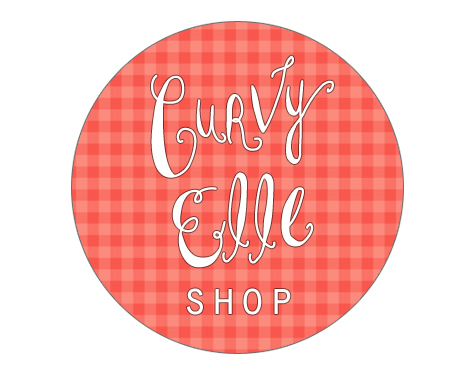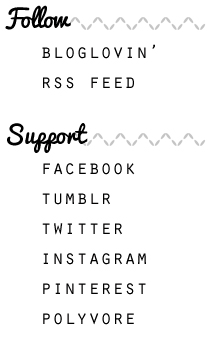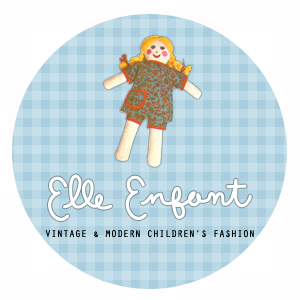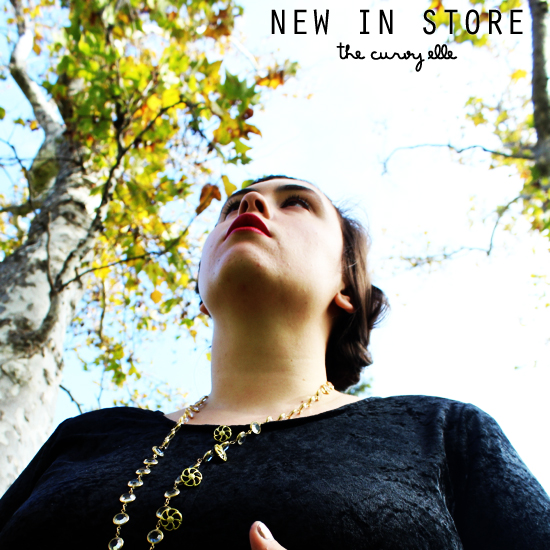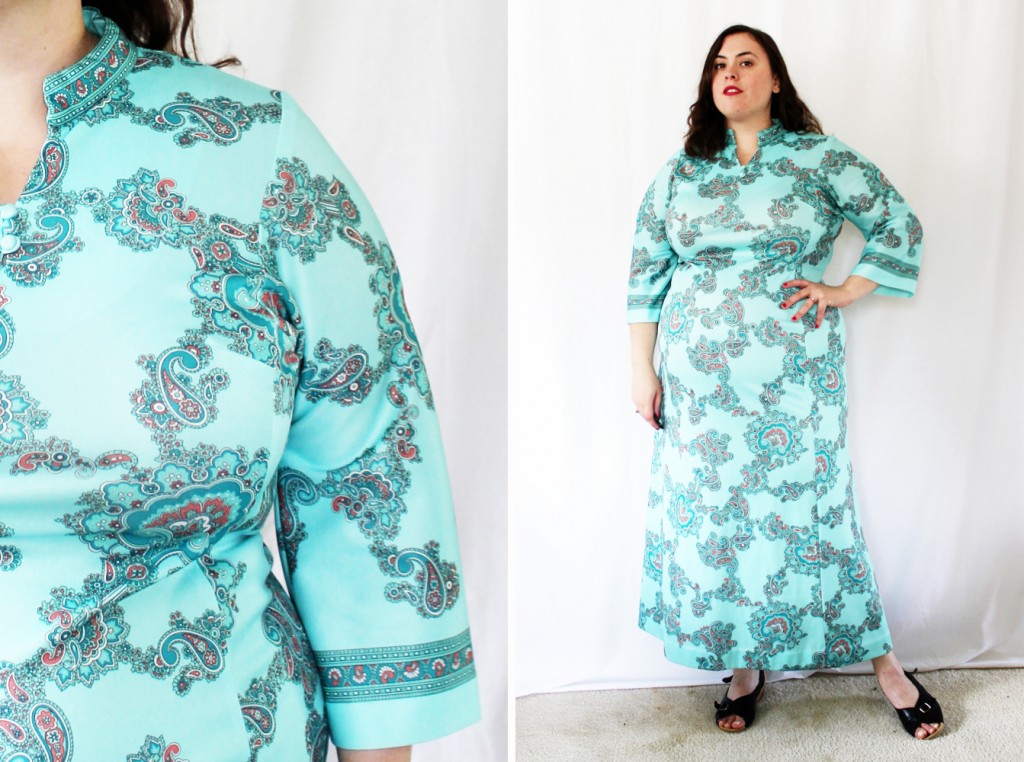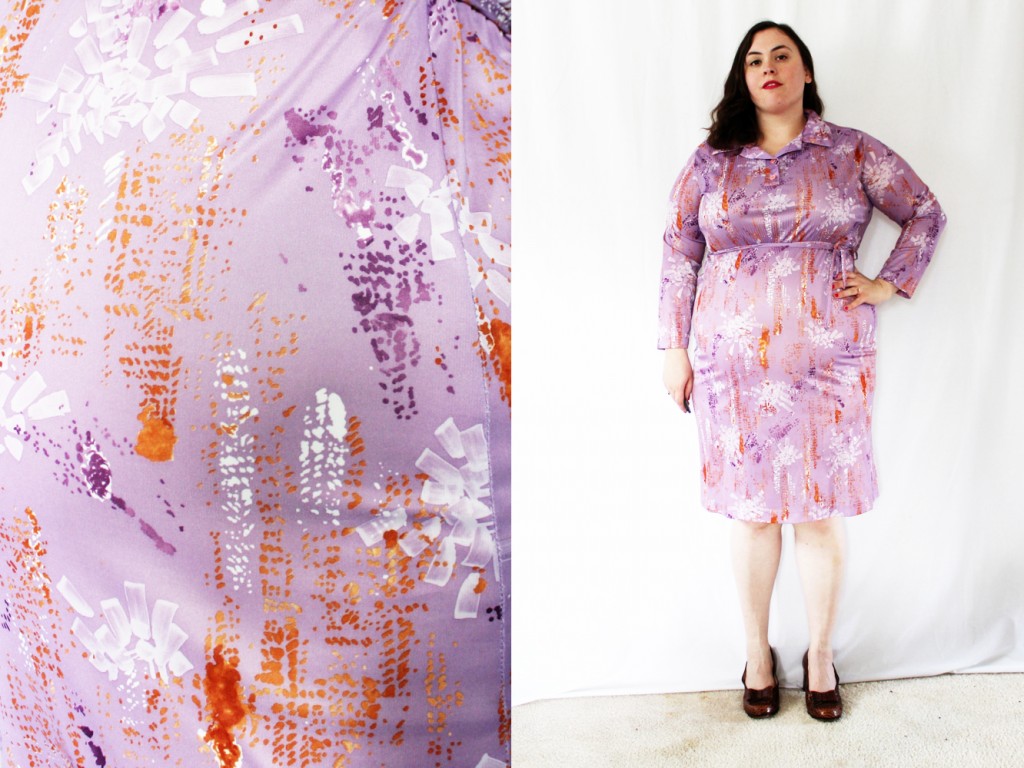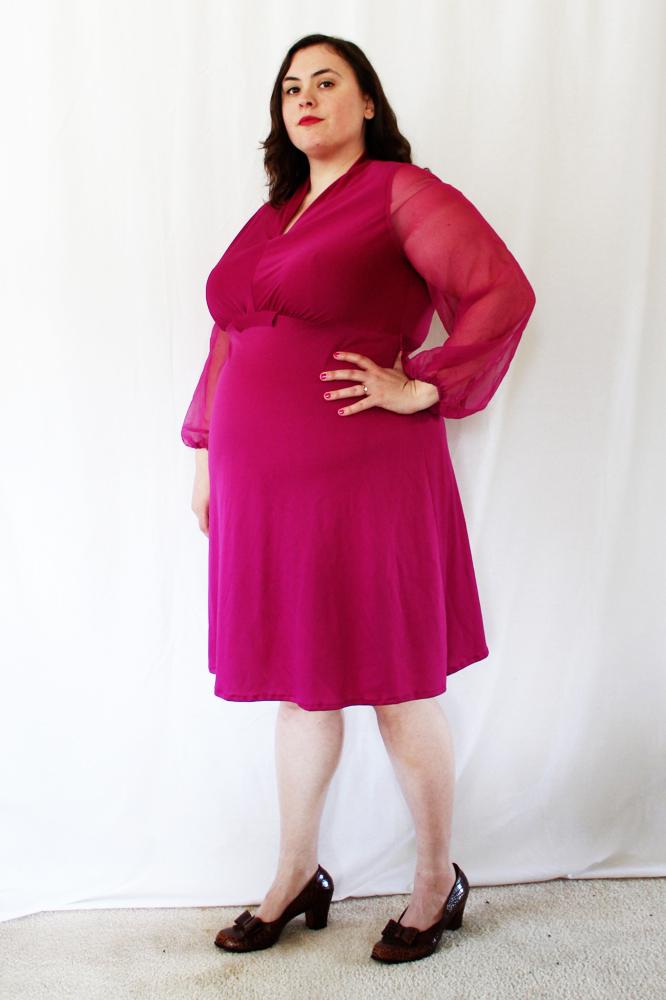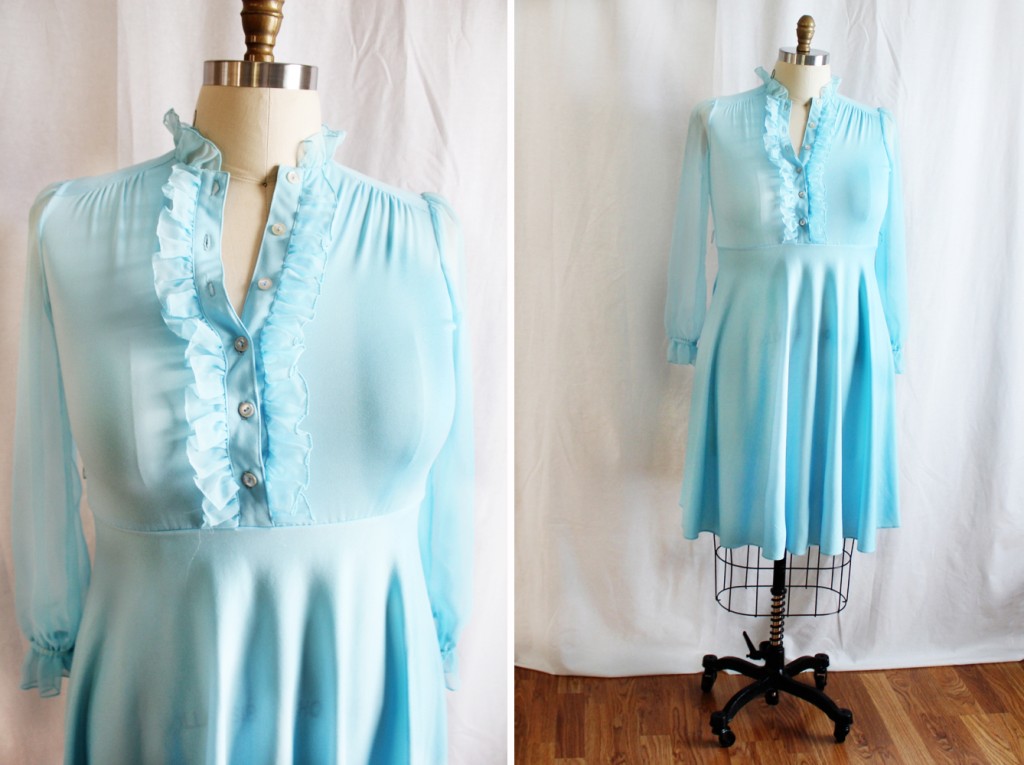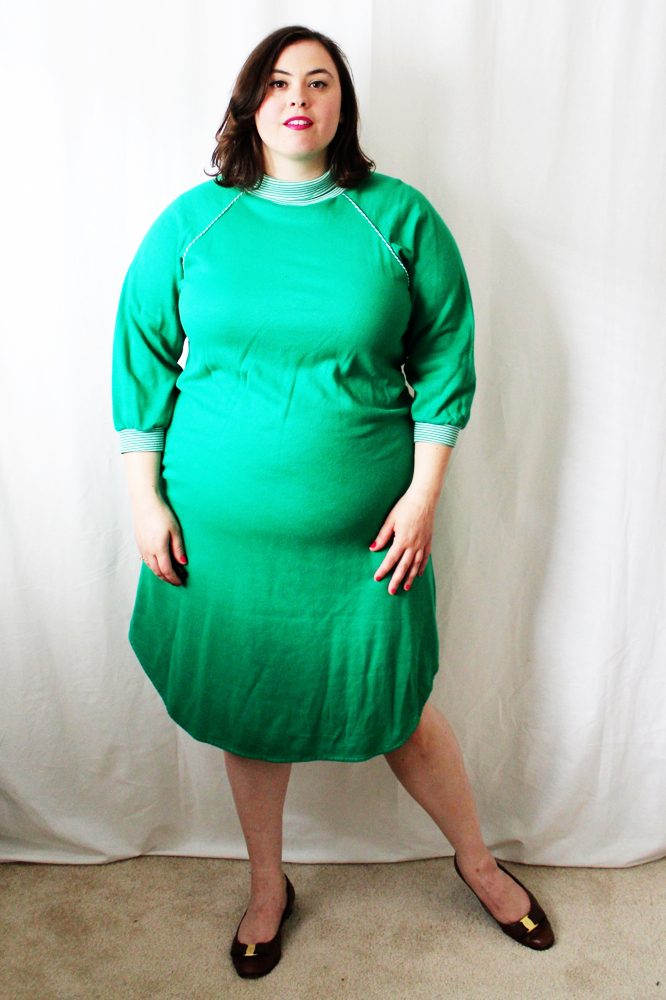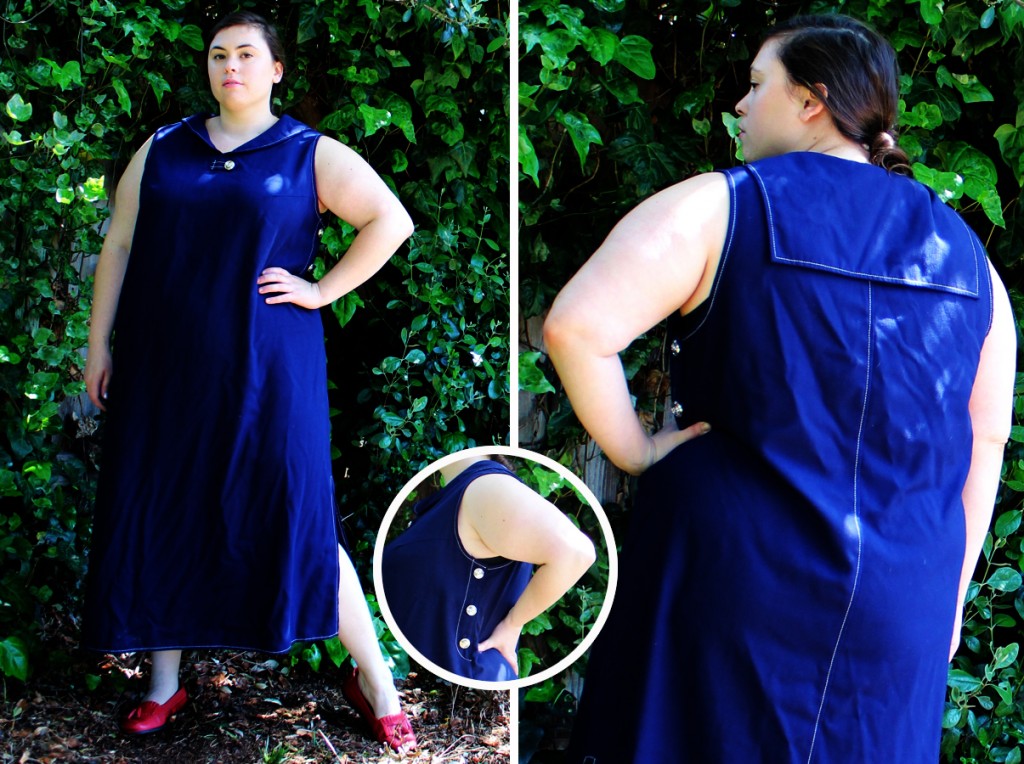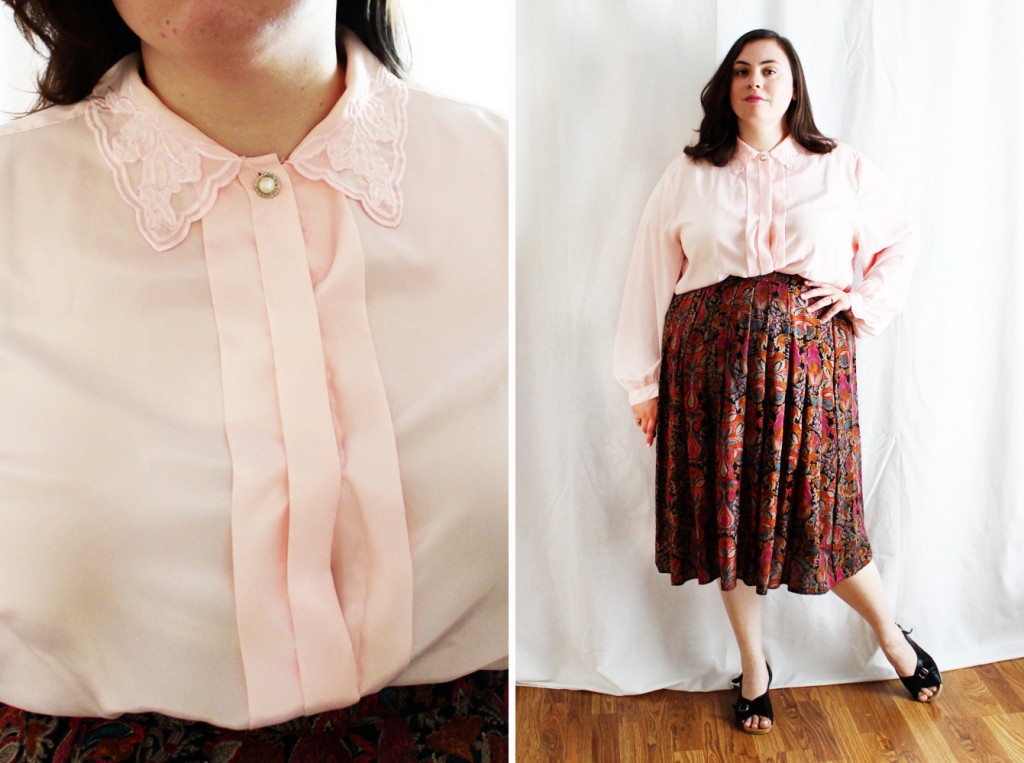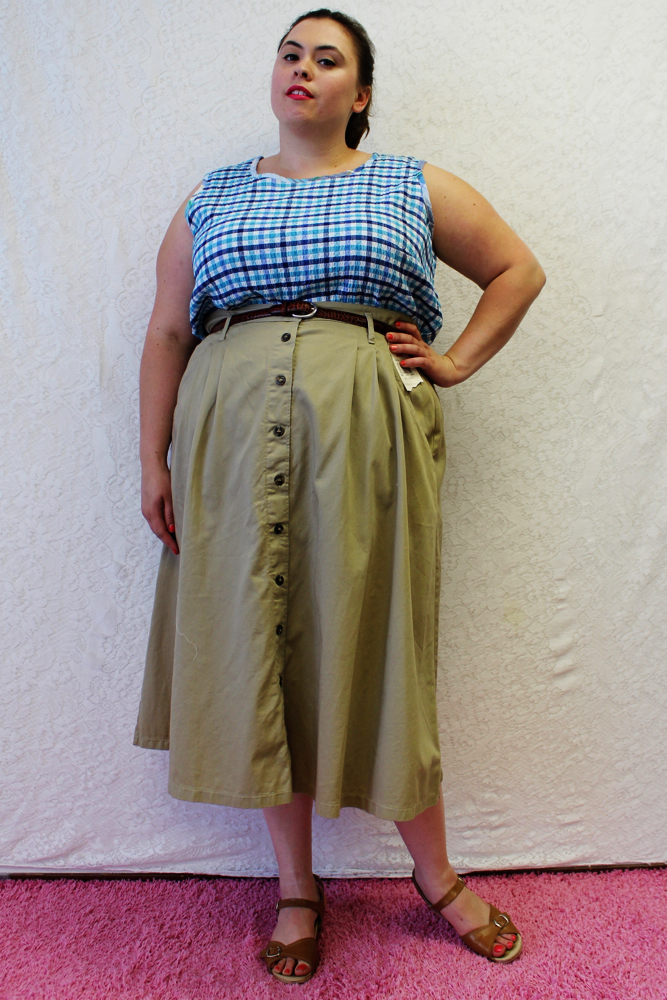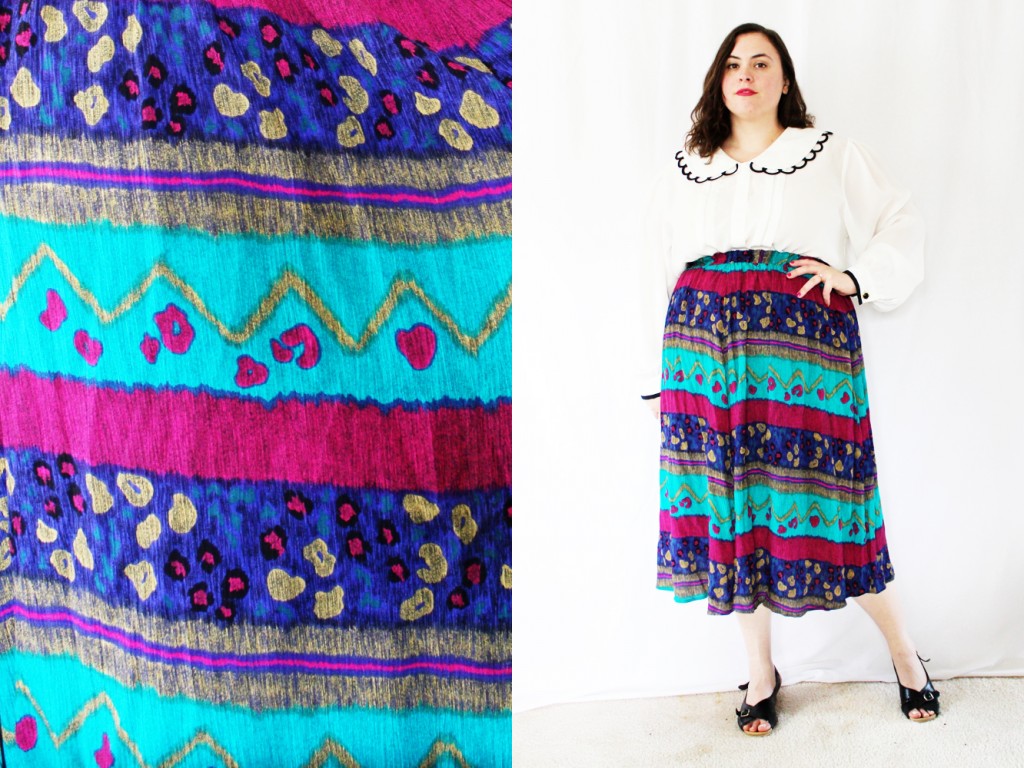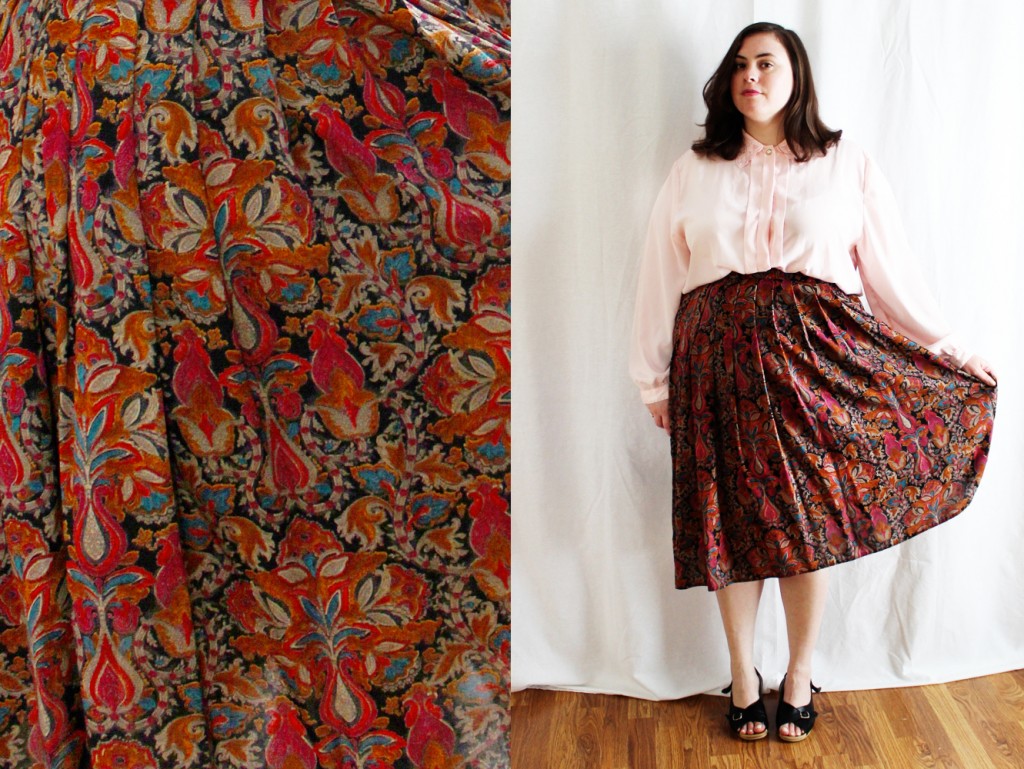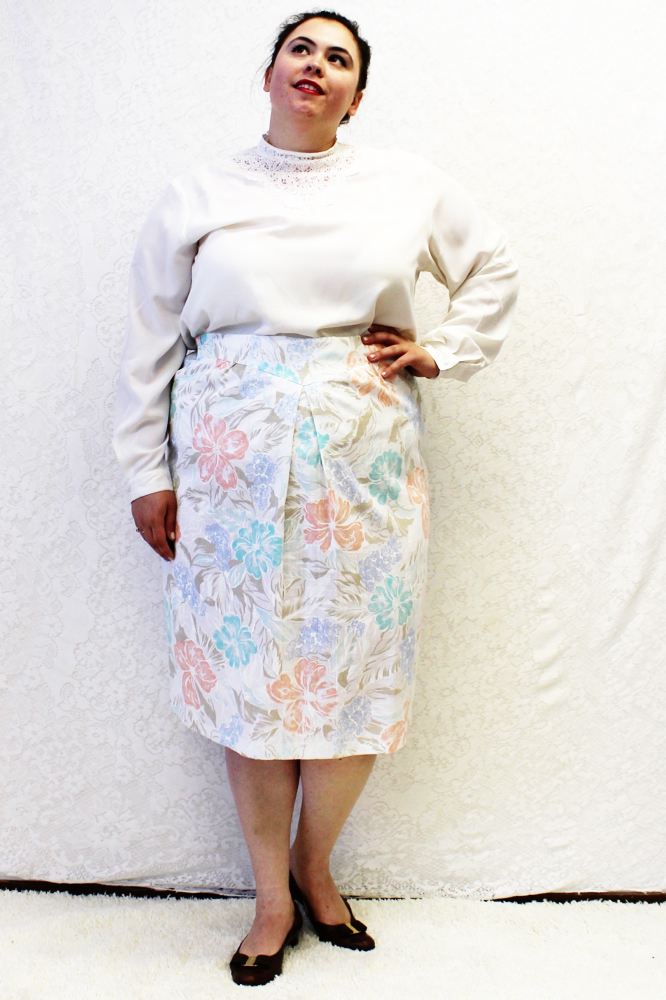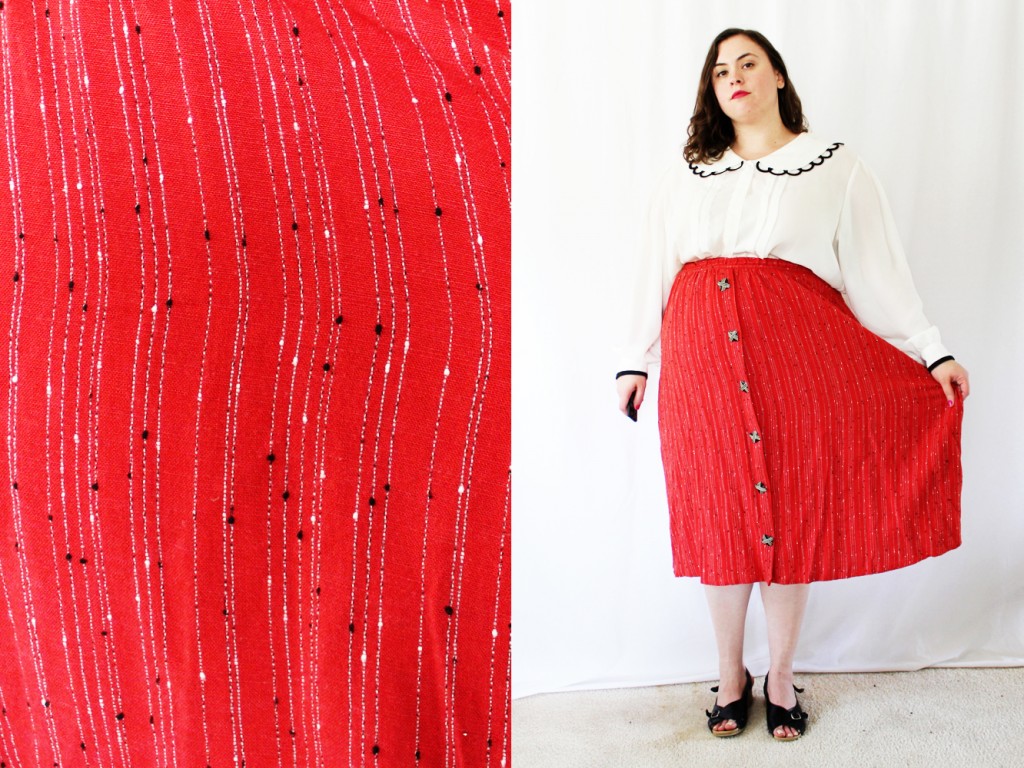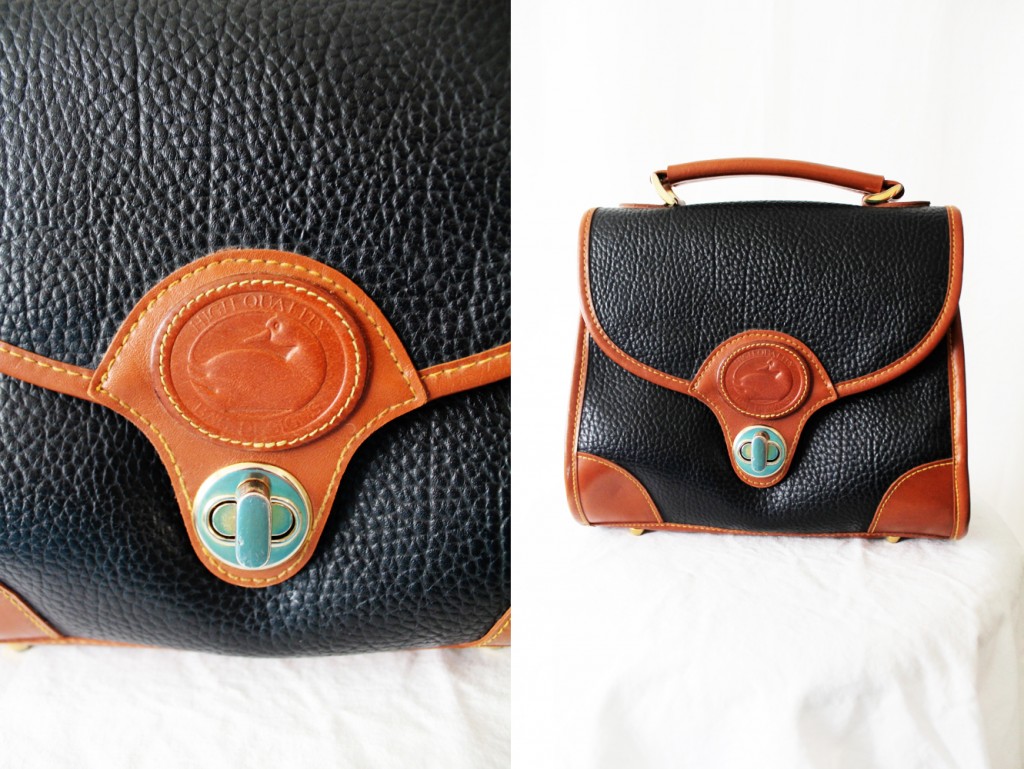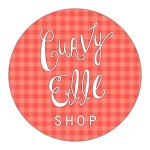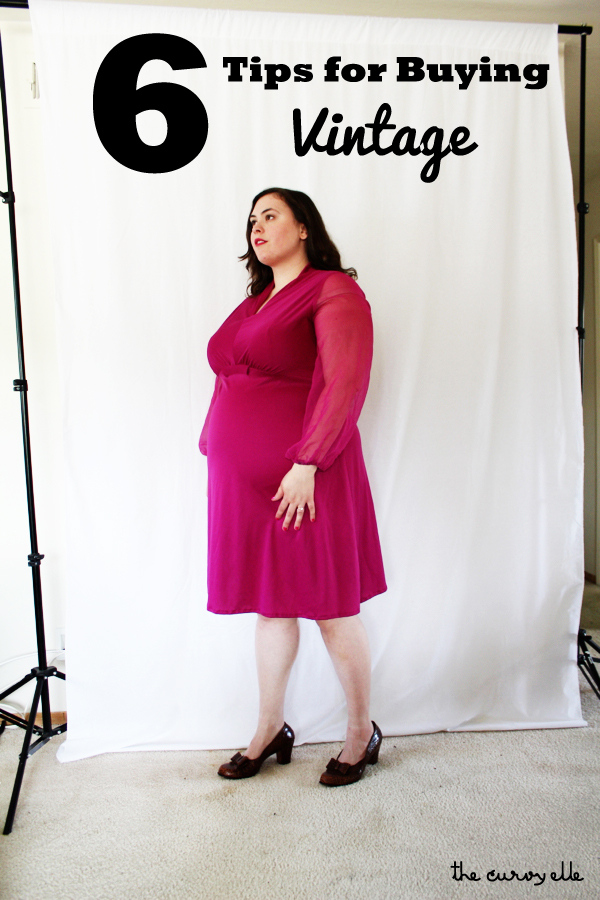
For someone who has bought thousands of vintage pieces for both of my online vintage shops (The Curvy Elle and Elle Enfant) and tried on even more pieces that I didn’t buy, I have a good deal of insight into buying vintage. As a vintage shop owner (for the last 3 years!), I also know the type of questions buyers ask and what they don’t ask. Here are a few of my tips on buying vintage:
* * *
1. Always Look at: Buttons, Hems, and Fabric
A good way to find problems with a vintage piece is to TRY ON. You will catch a lot of problems from this. The main things to look for are —
BUTTONS: Are all the buttons still attached? (This includes sleeve cuffs.) If no, then are there any extra buttons included on the garment and are you skilled in sewing to attach new buttons?
HEMS/SEAMS: Check the hems and seams to see if they are still sewn. If not, what is the condition of the hem and seams, and are you skilled in sewing to be able to re-sew them?
FABRIC: Look for stains — especially on the front. It is easy to miss small stains. If your garment has stains and you really want it, ask yourself: Is this a stain that is easy to get out? Is it worth trying to get the stain out.
2. Fabric Quality
Fabric on vintage pieces can vary greatly. Depending on the time period the piece comes from, chances are it’s probably made of Polyester or some other man made material. It will also be earlier versions of these fabric type, so they will not be the same quality grade that you find in modern garments. Most of these man made fibers do not breath well. If you have issues with certain fibers or are a ‘fabric snob’ of any type — maybe vintage isn’t for you. You may try an alternative to vintage instead — a retro dress from Modcloth?
3. Construction Quality
Vintage pieces can vary in construction quality. Sometimes you will find pieces that are highly tailored and other times you will find items that are the complete opposite. Now a days, all garments are finished inside because we have the technology to finish pieces easily with Overlock machines. On cheaper vintage garments, you may see unfinished edges and/or fraying.
4. Where You Buy Affects Price
THRIFT STORES: This is the cheapest place to find vintage, but you are going to have to work for it. You also need to know a little bit more about buying vintage. You will have to go through thousands of items to find one perfect item that fits you.
VINTAGE/ANTIQUE STORES: When buying from an antique or vintage shop, you are going to pay for someone else doing the hard work. Items have been specifically tailored for their customers. You do not get the thrift store prices, but it’s a whole lot easier to find what you want and good quality.
ETSY (& OTHER ONLINE RETAILERS): Buying vintage from Etsy shops, is the same as buying from vintage/antique stores. Someone has already done all the hard work of finding the best pieces, photographed them, and put up descriptions and measurements. This is no easy task and you are paying for a service. That’s why shop owners can not offer you thrift store prices.
5. Know You’re Buying Previously Owned
Always keep in mind, especially when ordering vintage online, that (usually) the items were previously owned. They may smell a little funny, they will need to be laundered, and they may be a little worn and need more TLC.
6. Read All the Information
This tip is mainly targeted at online buying, because you do not get to see the item in person until you have already bought it. The online shop owner has spent a great deal of time and effort photographing and typing up information and measurements. Read ALL information, so you know what you are getting. (If you need more information, email the shop owner!) Also, take your own body measurements ahead of time and compare them to the measurements of the garment. Doing this will help prevent you from buying an item that doesn’t fit you. Vintage sizing is very different from modern sizing. Do not go simply by the listed size, always look at MEASUREMENTS!

